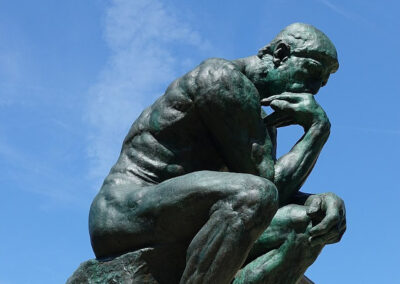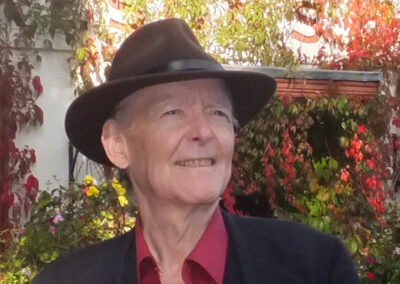For millennia humans have solved extraordinary problems as well as taken advantage of great opportunities through the use of a variety of mental processes. These have been described by various names including meditation, contemplation, introspection and concentration to mention only a few techniques. Today the use of the mind still remains society’s best chance for finding solutions to the array of increasingly tougher problems which present themselves.
Unquestionably we live in a much more complex world than any of our forbears. There is often far more going on around us than we can easily grasp. In almost every respect there are more opportunity for most levels of society with considerable rewards for those who are successful. And this greater range of opportunities means we typical face many more decisions than ever before.
Furthermore, we have through the use of information and communications technology intensified the need for greater levels of immediacy in the way that we both plan and live out our lives and this is obviously reflected in our decision making. The amount of information thrust at us can be nothing less than overwhelming. And many if not most things happen much faster than ever before.
The increase in complexity and the need for rapid responses to opportunities and challenges can lead to flaky decision-making. By flaky decision making is meant that the results of decisions will not necessarily produce the desired result not will any good result be necessarily sustainable.
So, what can be done?
The Institute of Reflection believes that the act of reflection can come to our aid and greatly improve decision-making. What the Institute proposes is that decision makers pause and consider a series of questions which will include inter alia, Have I really understood the current situation? Have I taken into account all the options available to me? Do I really understand the implications of the courses of actions I am considering? What should I consider to be a success? Effectively these questions move towards focussing the mind on the critical success factors of the project. There are obviously many more questions which could be asked but these 4 examples should give readers an idea of what is involved.
What is required is the ability to pause as opposed to make snap decisions. Then the decision maker needs to exercise his or her imagination to produce a number of penetrating questions which will help clarify the issues involved in the decision. There is little doubt that this will increase the probability of success and furthermore it will almost always make the decision maker feel better about the decision he or she will make.
This type of reflection is nothing more or less than what we would expect from a mature decision maker with a degree of emotional intelligence when undertaking an important decision. But no doubt there are many decision makers who need support in achieving this.
Of course, reflection can involve more than asking and answering these types of relatively straight forward questions. There is a deeper level of internal inquiry which those involved in academics research sometimes engage with. This is known as using reflexivity and involves standing further back from the project under consideration and inquiring about the values of the individual faced with the decision. The type of questions asked in a reflexivity exercise are more to do with the values of the researcher and how the outcome of the project will affect him or her and their colleagues and perhaps even the society at large. Here are the questions take the form of why questions such as Why am I engaged with this project at all? Why do I think that this project will benefit me? Why should my colleagues be as enthusiastic about this project as I am? In what way will this project lead to a better situation for all of those concerned? Once again these are only a few example questions.
It can be perceived from the above questions that reflexivity offers an opportunity to challenge the decision makers values.
Whereas almost everyone would agree that regular reflection is a good thing, after all thinking about one’s circumstances and the people around one is a mark of maturity and emotional intelligence, the idea of reflexivity is nowhere as widely accepted as it should be. Many believe that reflexivity can perhaps be a step too far and that it is not necessary to challenge one’s values, at least not regularly.
From the Institute of Reflection’s point of view both reflection and reflexivity are techniques which can be of value to many people in their daily lives as they cope with the high complexity and the speed required in the environment in which we currently live.







